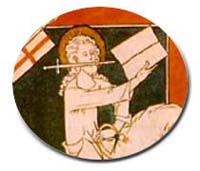Forgotten Truths
 |
 |
 |
 |
 |
 |
 |
It Is Not True that Workers Must Participate
in the Ownership of the Enterprise
One of the most commons sophisms heard today regarding the social role of the property is that the workers must always participate in the ownership or, at least, in the profits of the enterprise for which they work. This would be a demand of distributive justice.
The sophism consists in wrongly supposing that every enterprise enters the domain of public law in which distributive justice is applied. Most companies or businesses belong to the domain of private law and, consequently, fall under the rule of commutative justice, which is that which regulates the equitable exchange of goods and the fulfillment of contractual obligations.
Pius XII puts to rest this sophism and affirms that it is not a demand of justice that workers participate in the ownership of businesses.
The sophism consists in wrongly supposing that every enterprise enters the domain of public law in which distributive justice is applied. Most companies or businesses belong to the domain of private law and, consequently, fall under the rule of commutative justice, which is that which regulates the equitable exchange of goods and the fulfillment of contractual obligations.
Pius XII puts to rest this sophism and affirms that it is not a demand of justice that workers participate in the ownership of businesses.
Pope Pius XII
One would be far from the truth if he were to affirm that every private enterprise is by its nature a society in which the relationships among the participants should be determined by the rules of distributive justice, so that all, without distinction – whether they are the owners of the means of production or not – would have the right to a part of the ownership or, at least, of the profits of the business.
Such a conception derives from the hypothesis that all enterprises by their nature belong to sphere of public law. This hypothesis is incorrect: Be it an enterprise constituted under the form of a foundation or an association of workers with all as co-owners, or be it an enterprise formed by the private property of one individual who signs contracts with his workers, both types of enterprises belong to the private juridical order of economic life.
(Pius XII, Speech of May 7, 1949, to the
IX Conference of International Union of Catholic Business Owners' Associations
Discorsi e Radiomessaggi, vol. XI, p. 64)
IX Conference of International Union of Catholic Business Owners' Associations
Discorsi e Radiomessaggi, vol. XI, p. 64)

Posted January 16, 2016












